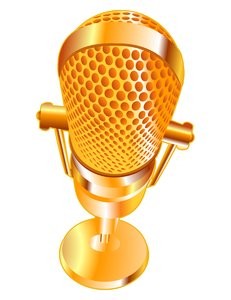I remember exactly where I was when I first heard Rush Limbaugh. I was a lad of 25, waiting for the girl who would one day be my wife in the driveway of her parents' home on Arbor Drive in Lancaster, PA. I was surfing the car radio dial when I heard the voice of a guy who reminded me of another pioneer that I admired ... the late Steve Allen, who created the format of the late night talk show as the first host of NBC's "Tonight."
I wasn't much into politics, but I had to chuckle when the host announced his "Timber Update." While Andy Williams crooned "Born Free," and the sounds of wildlife provided his backup, the sound of chainsaws and the occasional cry of "TIMBER" introduced the bit, which basically stated that, despite what the left was claiming, we actually had more trees now than at the time of the American Revolution.
As the days wore on, the Gulf War broke out, and I found myself returning to this man out of a sense of despair. There was talk of reinstituting the draft, and as I was still of age, I wanted the reassurance that everything would be okay. I remember undertaking the task of painting the bedroom of my rental with Rush playing in the background, and marveling at how fast the time would fly by for a man who entertained no guests, and took the barest minimum of phone calls. Limbaugh was informative and funny. Damn funny.
Another memory is an episode of "Donahue" right after Clinton was elected president. Rush was the only guest, and Phil opened the show with a broad grin saying, "The party's over, pal! NOW what are you going to do?" Rush just smiled, let the audience have its fun, and then informed Donahue that The Rush Limbaugh Program would be a success no matter who was in office.
History has proven him correct. For close to three decades and six administrations, Rush Limbaugh has been a mainstay of talk radio, a form that was all but dead before he syndicated his program in 1988. Rush ignored the rabble that said that you couldn't successfully syndicate in midday. You couldn't do talk radio without guests. And that there was NO way to make political talk remotely interesting outside of the beltway.
For a few years before moving to Georgia, I helped out in my dad's financial planning office. Every weekday at noon, we'd knock off work for a half hour, take out our brown bagged lunches, and enjoy Rush's short-lived television show. Fond memories indeed. The show didn't last long, mostly because affiliates relegated the program to the wee hours of the morning, and I had the feeling that Rush was more comfortable behind the golden Excellence in Broadcasting microphone of his radio studio.
Through the years, I've seen many the eyeballs turn northward if Rush Limbaugh would come up in conversation. I'd always respond to those the same way. "Look," I'd say. "Agree with what he says or don't. But the man is peerless as an entertainer." No argument there. I'd go on to say that, were it not for Rush, I don't know how I would be putting bread on the table today.
This is not hyperbole. I've always been a disciple of radio. I have memories of listening to the crystal set I built from a Radio Shack kit to "The CBS Radio Mystery Theater" when I was supposed to be asleep in bed. I remember battling homesickness at sleepaway camp by listening to Harry Kalas and Richie Ashburn calling my Phillies games.
But when Rush came along in the late 80s, AM radio was in big trouble. Music had migrated to FM, along with the lucrative demographic that listened to radio, and talk radio consisted of panel shows and local issue-driven commentary. Rush succeeded against all odds, and begat the programs that took much of his format, and gave amplitude modulation a reason again to exist. I seriously doubt that WDUN would have had a place for me, were it not for the EIB network.
As it happens, I did agree with Rush more often than not. And more importantly, he'd see issues in ways that I hadn't considered, and truly educated me in conservatism and how the "system" works. In terms of radio, I probably learned more about that form from the late Don Imus, because I don't have anywhere NEAR the AM/FM cajones of El Rushbo.
In my 28-year run here at WDUN, I've seen many talk shows sign on and fade away. Many, even the great Paul Harvey, would shift time slots -- in many cases because of the noon to three phenomenon that Rush was. That's truly remarkable. An entire audio landscape would shift ... a liberal knock-off network would be launched and defeated ... talk shows hosted by Geraldo Rivera, G. Gordon Liddy, Dennis Miller and Laura Ingraham would come and go. But at 12:06, 1:06 and 2:06 each weekday afternoon since 1988, we'd hear the opening of "The Rush Limbaugh Program," as reliable as Big Ben. For many, he represented the halfway point of the work day ... and you only needed to survive two more hours without him before heading home.
"At the EIB Institute for Advanced Conservative Studies, there are no graduates," the Dean would say. "Because the learning never stops." While that is definitely the case, I awoke this morning saddened in the knowledge that we lost our best teacher, by far, when Rush Limbaugh succumbed to the lung cancer he so bravely fought. I listened as Sean Hannity and Mark Levin confirmed what I always suspected. Both men would listen daily to hear what Rush Limbaugh thought about the issues, because he would invariably find an angle that the rest of us missed.
You don't replace a man like Rush Limbaugh. The best that you can do is remember the lessons that he taught you. No, not necessarily conservatism. But the importance of finding what you love to do and give it your very best each and every day. Rush found his talent and his passion and hated vacation. He never retired. After years of operating with "talent on loan from God," that note came due Wednesday, February 17, 2021. Rush was always only on loan to us. It's time for us to move on as best we can without him. As for the golden EIB microphone ... that needs to be on its way to the Smithsonian today.










